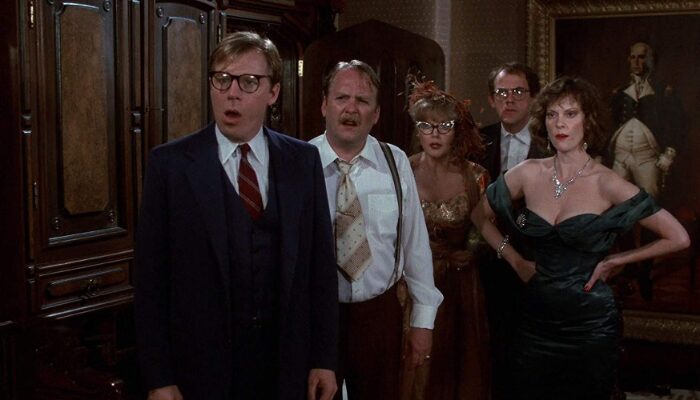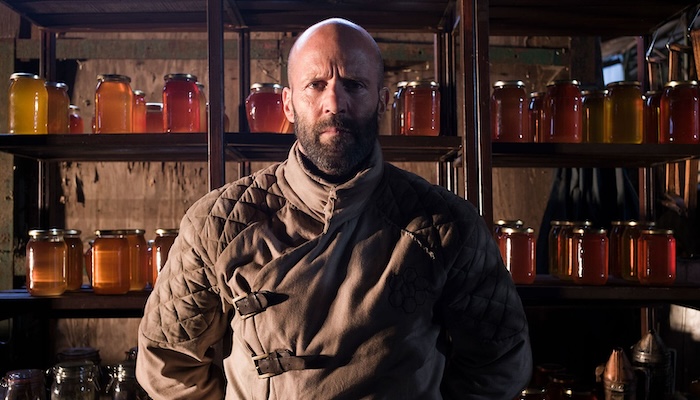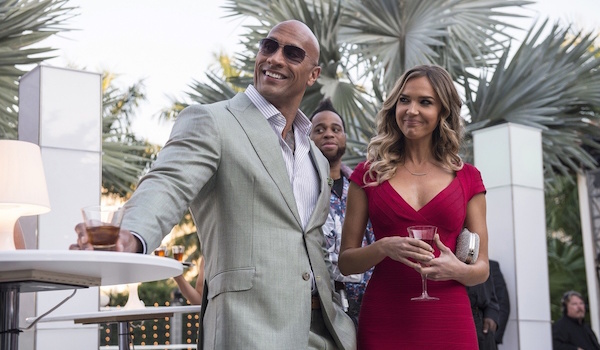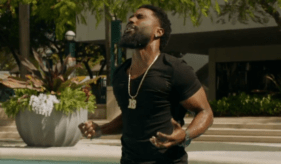TV Review: BALLERS: Season 1, Episode 3: Move the Chains [HBO]
HBO‘s Ballers Move the Chains TV Show Review. Ballers: Season 1, Episode 3: Move the Chains found me changing my opinion about the football drama. I was less than enthralled with the first episode of Ballers, a show centered around the goal of branding and marketing a financial institution, Anderson Capital, to among other potential clientele, the Miami Dolphins, give or take a free agent. The insipid pilot didn’t quite grab the story by the undercarriage amid the obliviously rife and over the top sexism finding the initially shallow character arcs. Who flashes panties at a funeral, seriously? Ugh. And who talks about it?
Among other questions I needed addressed were: Why is Spence (Dwayne Johnson) letting some random, Vernon (Donovan W. Carter), borrow $300,000 from him personally? How is this washed up player, Charles (Omar Benson Miller), who has to take a job selling cars, but has the most amazing wife, relevant to this story? I was lost.
I have been found on Mr. Anderson’s (Richard Schiff) blingin’ yacht in episode three, Move the Chains, as it builds to some clever converging conflicts within and among the firm’s clientele and execs. The writing is solid, and the characters are starting to entwine with impending force. Ballers love to party, but if you thought the show was going to let ballin’ play out as perfectly placid and socially acceptable in this male dominated and recreated world of pro football, you were wrong, and so was I.
Blame the commercial.
When you watch a show about chauvinists living the pinnacle lives they believe everyone is jealous of, shouldn’t they get what’s coming to them? Shouldn’t they?
They do. However, this isn’t going to invite the politically correct viewer’s blind eye, and according to Spence’s boss, Joe (Rob Corddry), they are cementing the brand of the firm with the mantra; get laid, have fun.
Pranks and fighting, impending tabloid editorial, cold ex girlfriends, being derided in front of a room for sex with a teammate’s mom, selfies documenting lines of blow with naked women, an obsessive adversary looking to completely destroy you, and committing to your shell as the white guy at the party who gaffes the “N-Word” and gets thrown off the dock are some of the rising antagonisms and comedic reliefs in episode three.
And I can only sense that there is more where that came from. Ballers has wings. And a motorboat.
Looking past the social errs and industry gendered statistics with the casting roles, this show is a soap opera for NFL lovers with mounting fine tuned character development not originally anticipated, but not for the squeamish who can’t stomach the blatant emotionless sexual defenses. The inevitable downward spiraling for some of these guys is all but too soon to start predicting. Is Spence a buddy savior who has to be a real brother and not just a recycled ex player posing as a (broke) financial mentor?
We’ll see. The professional immaturity is starting to take some dramatic shape finally.
Leave your thoughts on this review and this episode of Ballers below in the comments section. For more Ballers reviews, photos, videos, and information, visit our Ballers Page, subscribe to us by Email, “follow” us on Twitter, Tumblr, Google+, or “like” us on Facebook.
Related Articles
FilmBook's Newsletter
Subscribe to FilmBook’s Daily Newsletter for the latest news!













